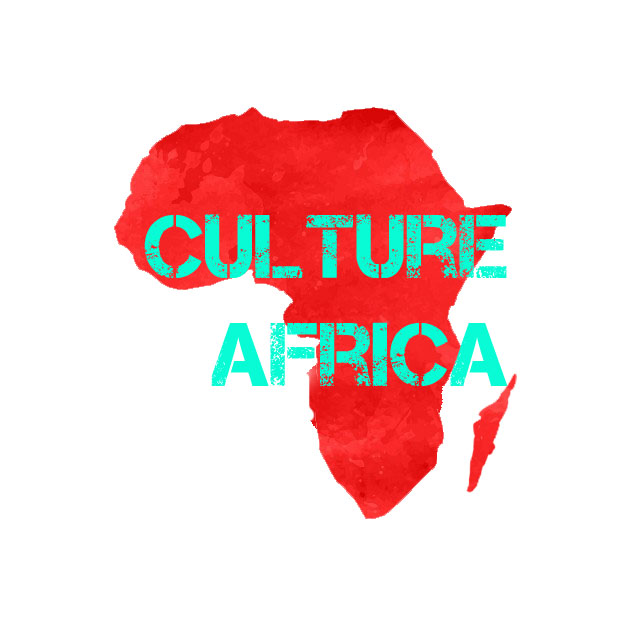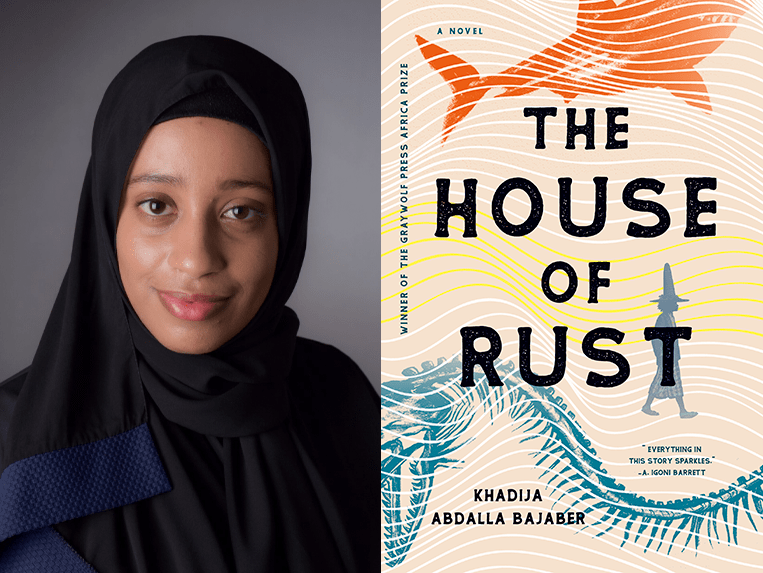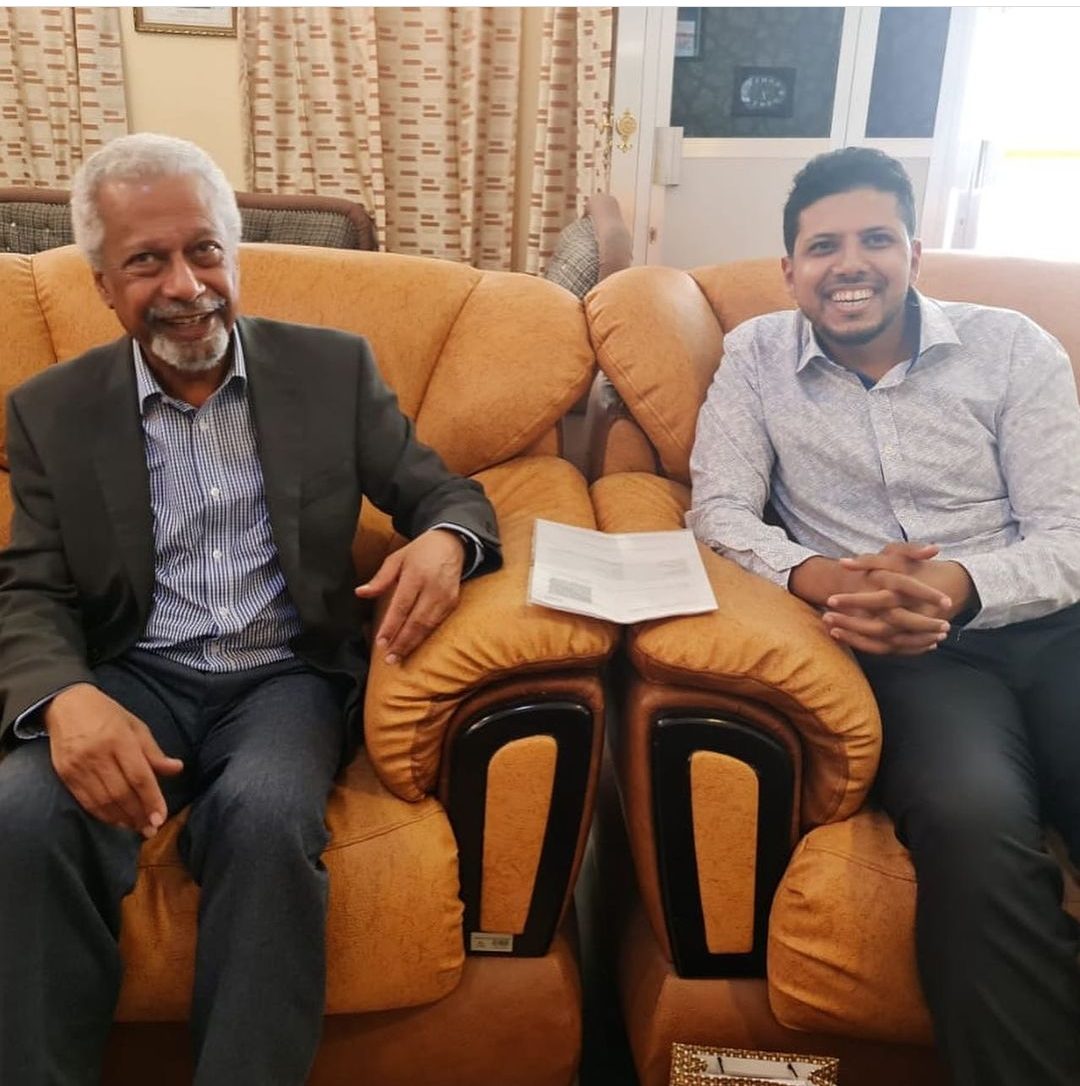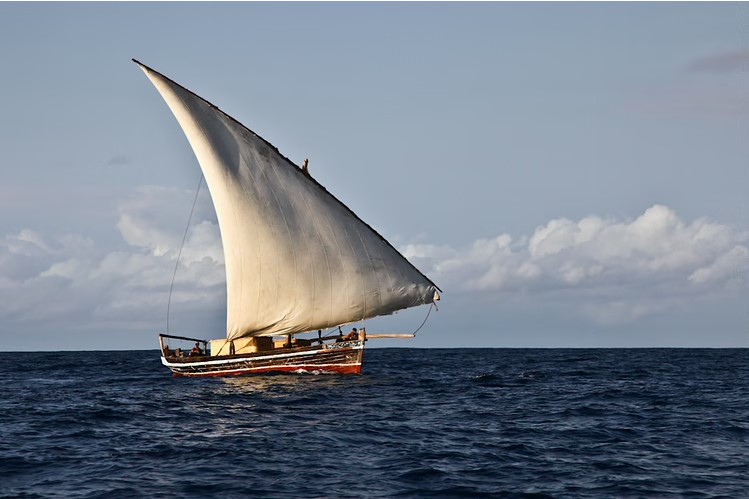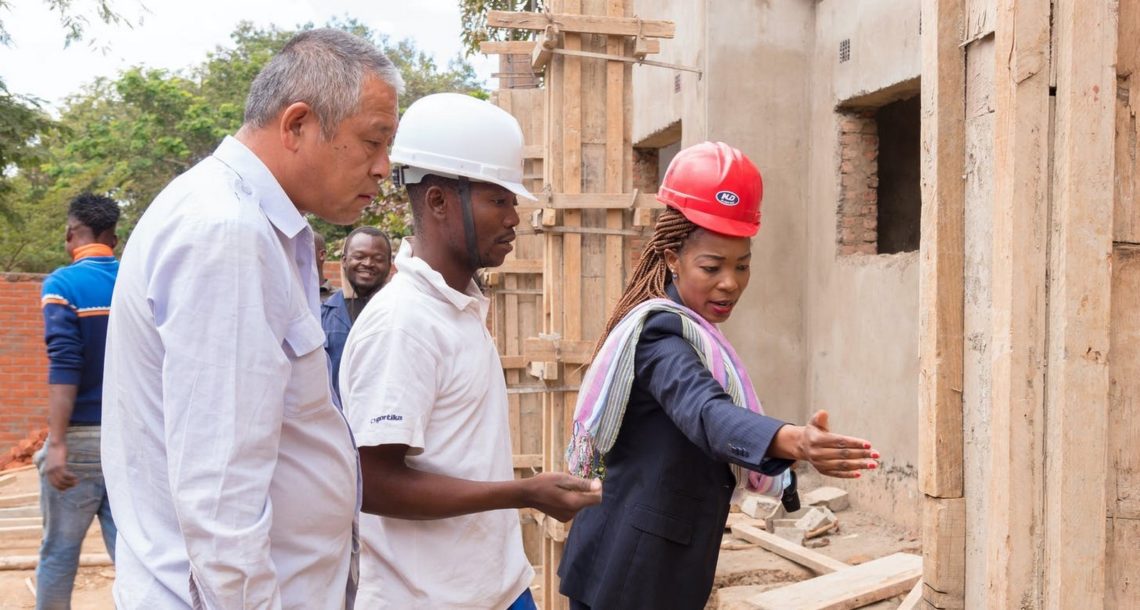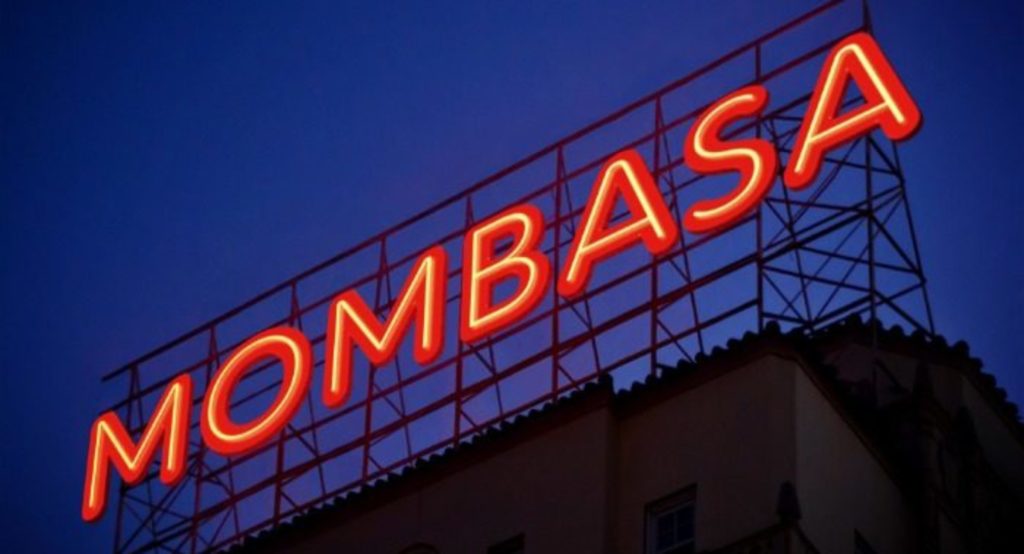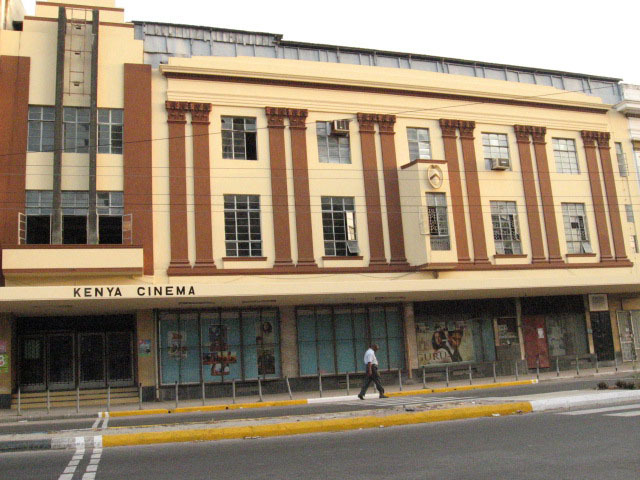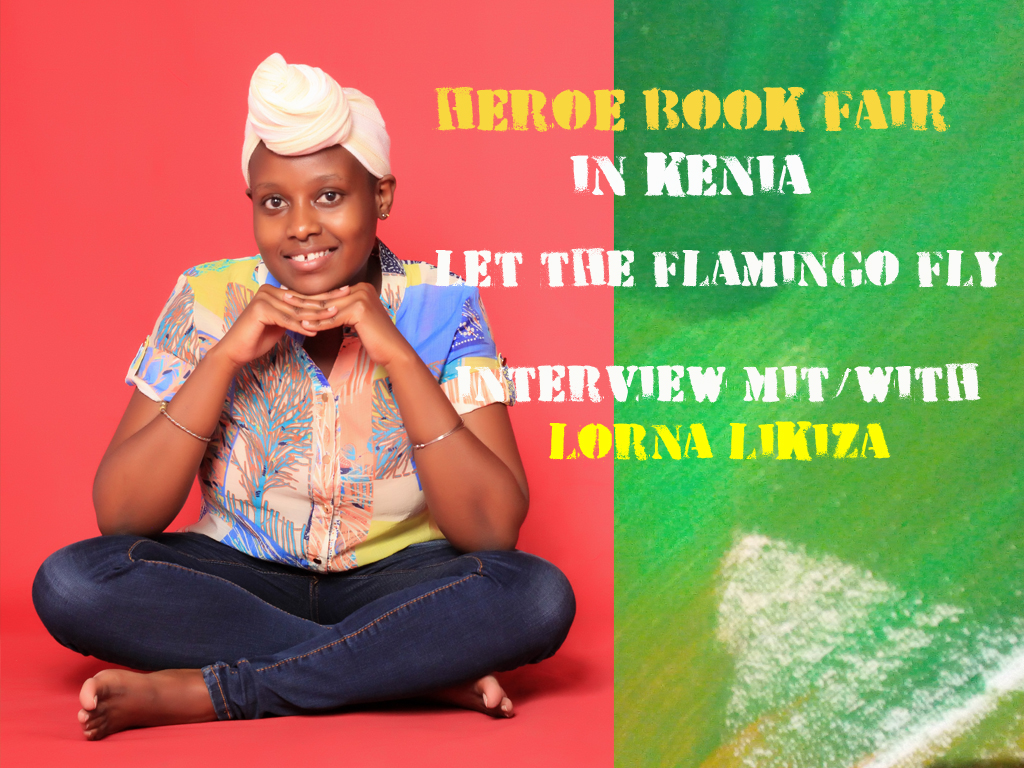-
The House of Rust and Swahili Culture – Interview with Mombasa writer Khadija Abdalla Bajaber -engl
Khadija Bajaber had written a successful book last year, The House of Rust, which was recognized very well in african countries and abroad (see also the review of Lorna Likiza on this site). Raised and living in Mombasa, Kenya, she is strongly influenced with Swahili Culture and its long and rich history. This year, Khadija Bajaber is an invited guest at the African Book Festival in Berlin. I took the chance to talk to her before she left for Europe. And, yes, the answers are longer than in usual interviews. But its published here in full lenght version. For the first issue, only in english this time.
-
Ally Abdallah: The Book, the Festival, Zanzibar and the Nobel Prize winner – Interview engl/ger
It is a great event, a great surprise that Ally Abdalla has managed to pull off. For the first literature festival in Zanzibar, Ally was able to attract no less than the current winner of the Nobel Prize for Literature, Abdulraznak Gurnah. For Gurnah, who is from Zanzibar but had to leave the island in the 1960s, it is a triumphant event to be back. At the Heroe Book Fair in Mombasa, I spoke with author, filmmaker and organizer of the new cultural event in Zanzibar, Ally Abdalla.
-
A phantastic Mombasa journey: The House of Rust – Book Review by Lorna Likiza – engl/ger
A phantastic Mombasa journey: "The House of Rust is an enchanting novel about a Hadhrami girl in Mombasa. When her fisherman father goes missing, Aisha takes to the sea on a magical boat made of a skeleton to rescue him. She is guided by a talking scholar’s cat (and soon crows, goats, and other animals all have their say, too). On this journey Aisha meets three terrifying sea monsters." (Graywolf Press) Khadija Abdallah Bajaber's, THE HOUSE OF RUST, is proof of that the fantasy genre has a future in Kenyan literature.
-
Pwani Tribune – Passion for Coastal Culture and History Interview with/mit Albert Mwamburi engl/ger
I recognize the need of bringing these other Coastal cultures to prominence. The kind of prominence that Swahili culture enjoys. And there’s actually so much to write about them. When you mention that the Swahili historical evidence is readily available, I would like to bring to your attention that there are also some caves in Taita Taveta County that very few Kenyans know about. These are the kinds of things I strive to highlight.
-
Architectural Guide Sub-Sahara Africa Part/Teil 3 ger/engl
Die in Englisch veröffentlichten Bände des Teams Philpp Meuser und Abdil Dalbai sind mit hunderten internationalen AutorInen entstanden, viele davon aus Afrika. Im ersten Artikel erschien ein längeres Interview mit den Herausgebern. Der zweite Artikel befasste sich mit dem Einleitungsband sowie den ersten zwei Regionalbänden. In diesem Artikel stelle ich die Bände 4 bis 7 vor. Es sind viele interessante Überraschungen enthalten.In deutsch und in english
-
Kenyan Cuisine has a lot to offer: Interview with Yvonne Mula
Aus unserer Reihe über afrikanische Kochkunst besuchen wir heute das Restaurant Mikaye in Mombasa. Yvonne Mula wird im Interview ihre Philosophie der afrikanischen Küche erzählen.
-
Heroe Book Fair 2021 in Mombasa – Ein Bericht – A Report
Vom 22.3. bis 26.3. 2021 fand in Mombasa, Kenia die zum ersten Mal die Heroe Book Fair 2021 statt. Cultureafrica.net war nicht nur Partner der Buchmesse, sondern auch vor Ort. Eine Bilanz. From 22.3. to26.3.2021 the heroe book fair took place for the first time in Mombasa, Kenya. Cultureafrica.net was not only partner of the book fair, but also on site. A balance. For english version please scroll down. Die Idee Es war eine Idee. Eine Buchmesse für Ostafrika. Entstanden im Norden Kenias, in Nakuru. Gründerin Lorna Likiza hatte die Flamingos vom Lake Nakuru im Sinn, als sie der Messe ihren Namen gab: Heroe Book Fair. Heroe ist das Swahili Wort für Flamingo. Und davon gibt es am lake…
-
How Indian cinema shaped East Africa’s urban culture -Indien und Ostafrika – eine Filmbeziehung
Die 60er, 70er und 80er Jahre werden oft als das Goldene Zeitalter des indischen Kinos bezeichnet und in Nairobi, Mombasa und Kisumu gab es eine große Anzahl von Kinos, die sich der Vorführung von Filmen aus Bombay widmeten.Der ostafrikanisch-asiatische Einfluss auf die Kinokultur in der Region wird nicht oft erkannt, auch wenn indische Filme über Jahrzehnte Landschaften, Mode, populäre Bilder und Musikgenres prägten. Von Nairobi über Kampala bis Sansibar vermittelten indische Filme Wissen, vereinten Familien und boten vielen Träume und Fluchten, vor allem in den 60er, 70er und 80er Jahren, einer Zeit, die als das goldene Zeitalter der indischen Kinokultur in der Region gilt. The 60s, 70s, and 80s are often described as the Golden Age of Indian cinema…
-
Heroe Book Fair in Kenya – Interview mit/with Lorna Likiza
Heroe Book Fair will bring together Anglophone and Francophone Writers, Poets, Publishers and Literary Enthusiasts from Africa and the Black Diaspora yearly, in a couple of days celebration of their literary works and achievements. The inaugural edition will happen both virtually and physically with limited movement at the said venue in Mombasa.
